I’m a firm believer that education and adventure are both lifelong endeavors. The things that I continue to learn through the wilderness remain to be some of my greatest lessons, and they shape who I am at my core.
Take Care of Yourself, Take Care of Each Other
On an expedition, if I don’t take care of hot spots, I’ll get blisters. Forget to put on sunscreen? I’m going to get burned. If I don’t cook my dinner, there’s no fast food in sight. Self-care is essential in the backcountry and if I try to put it off, then nature will quickly remind me of its importance.
These exact problems don’t exist in my everyday life. Neglecting my self-care may not lead to blisters or sunburn, but it’ll likely lead to problems even more intense—burnout at my job, stress in my relationships or physical illness. We all make mistakes in the wilderness and in life. The important thing is that we learn from them. If I get a sunburn one day, then I’ll be sure to cover up the next. If I don’t get enough sleep because of procrastination one day, I’ll be sure to adjust my schedule to get enough sleep the next. The wilderness reminds us that we can learn from our mistakes and keep adjusting what we’re doing as we go along. No one is perfect, and we all have the capacity to grow.
Self-care is also listening to yourself. Maybe it’s the 15 minutes you take to yourself by a stream or it’s engaging in deep conversation with someone else along the trail. In the wilderness, we can learn to trust our gut. If it’s telling us to stay back, then we listen. If it’s saying: it’s time for a snack or time to dig deep, we listen. In the quiet moments on a trail, I hear my gut. I’m reminded of what I need. My thoughts and feelings are clarified in a way that I may not have the time or space for either at work or school. As I slow down, it’s easier to check in and listen.
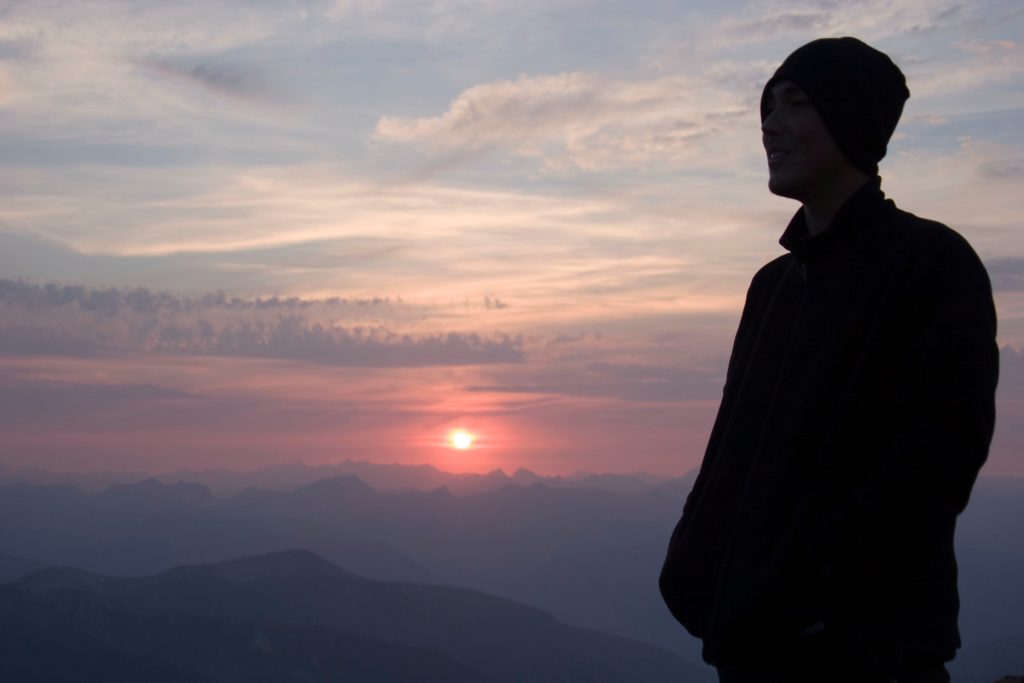
The tools I’ve learned from my wilderness education about self-care are, at their core, quite simple. Take care of your basic needs. Learn from your mistakes and strengthen yourself for the future. Find what makes you feel full and get more of that. Listen to your body, your thoughts and your feelings.
In the backcountry, taking care of myself also means prioritizing my team. At many of our meals, we share the phrase, take care of yourself, take care of each other. It points to the important idea that valuing and caring for ourselves is as important for us as it is for the group. If my lack of self-care means I end up hurt, then the rest of my team must also pay the consequences.
Although it may be less obvious, the same thing applies in the front country. If I show up to work without enough sleep, my co-workers must pick up my slack. If I’m always stressed, then I’m more likely to snap at my family member. The wilderness provides me with tangible examples of how important self-care is for myself and those around me. These lessons transfer into less tangible, but equally important aspects of my everyday life.
Learning from Conflict
When you’re living with a team for 24 hours a day, conflict is inevitable. Really, when you’re working in an office, living with others, or existing in our world, conflict is inevitable. However, in these situations it can be much easier to avoid or allow someone else to figure it out. In the wilderness, we have to deal with conflict. The many ways of dealing with conflict help us learn about ourselves, those around us and how we want to approach conflict in the future.
On an expedition, if I don’t offer someone else feedback, then it can negatively impact the entire team and ultimately create an unsafe environment. If I choose to ignore something that’s been bothering me, it has the potential to blow up or result in a stressful situation, such as on a steep traverse or traveling on snow. If a conflict does arise in these situations, it’s important to debrief it in a safe environment where we can learn how to talk about these things sooner so that we are prioritizing our safety.
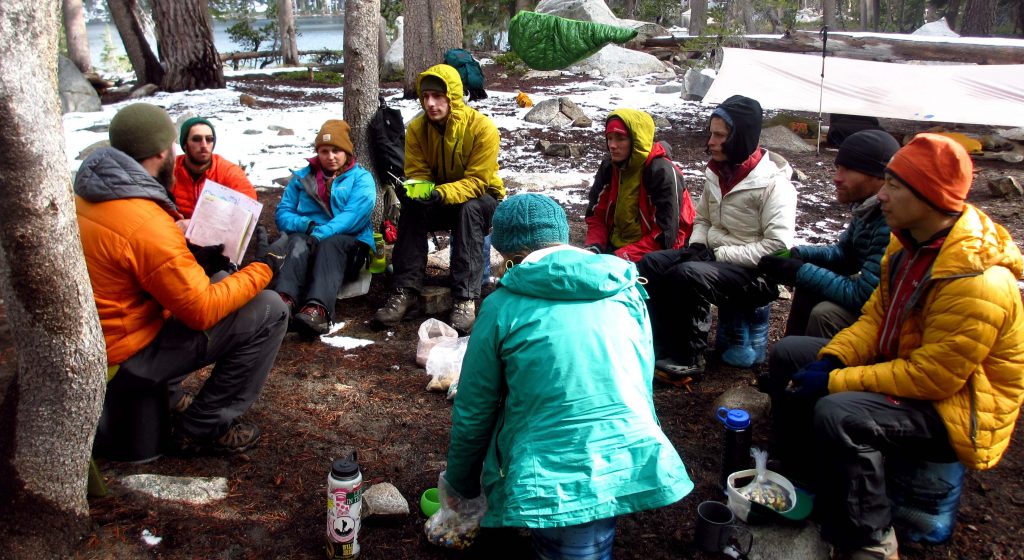
On many courses, we create intentional time to talk about feedback, our group culture and how our team is performing together. These concrete times during our evening meetings provide a space for individuals to talk about conflict and learn how to work through conflict with one another. If these places don’t exist in my workplace or school environment, I have learned to ask for more of it. A structured time to talk about what is working and what isn’t can keep relationships strong and address conflict during calm moments rather than stressful ones.
In everyday life, conflict will exist in the same way as it does in the wilderness. It just may be less obvious. As I’ve learned in the wilderness, it’s okay to ask for what I need in conflict. For me, that is often time to process in the “heat” of the moment. It’s also important for me to verbally communicate with those around me so that they know what I’m thinking, and I can know what they’re thinking. It’s also important to be aware of how I handle conflict and how I communicate with different styles of conflict resolution so that we can work together. Often the strongest bonds are created between those who have trouble together and overcome it. Conflict provides us with this chance to embrace our differences and move forward as individuals who can still support one another. The wilderness provides us with the structure, experience and bravery to bring this sort of difficulty into our lives in the front country.
BAM! (Beauty Appreciation Moment)
When traveling in the wilderness with my friend and fellow Instructor Hannah, she often calls out, “BAM!” as a reminder to stop and take in the beauty around us. Whatever we’re doing, we stop and look at the sky, the earth around us and the plants.
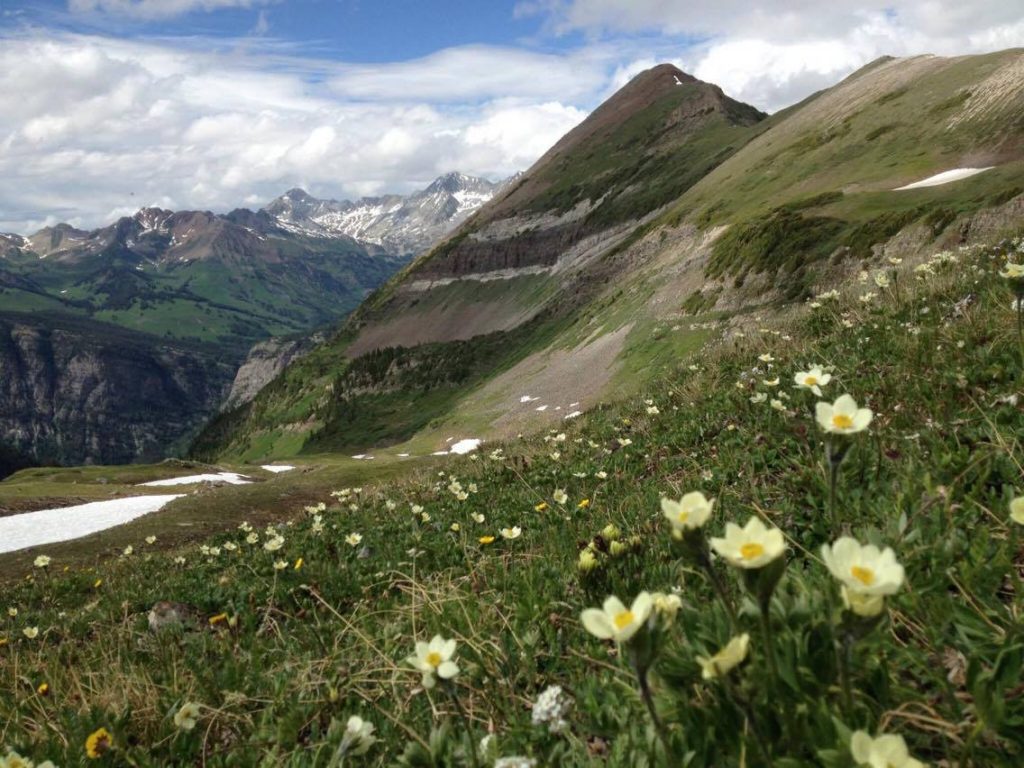
Photo courtesy of Jess Priske
Being in nature almost always encourages us to be mindful. At higher altitudes, it’s easy to be aware of my breath. I have no problem putting down my phone when I don’t even have any cell service. Nature brings us in touch with our senses as we travel down the trail, swim in a river or sit by a fire.
Many of the mindfulness tools that I use to stay in balance while I’m at work and school I learned through traveling in the woods. Take slow breaths. Pay attention to your senses. Notice what you’re feeling. Notice what you’re doing. One step at a time. Life is not a rush.
What It Is to Belong
At the end of each expedition, we have a pin ceremony, where we reflect on our time together and the ways in which we have learned and grown both as individuals and as a community. We think about the greater Outward Bound community in these moments and reflect on all the people who we may never even know have shared this experience with us. To deeply think about this sense of belonging is incredibly powerful.
Ultimately, being human is about connecting with others. We are innately social creatures who yearn to belong. Sometimes a fear of not belonging can be what leads us to exclude others. The wilderness reminds us of the importance of being part of a team. And going on a course also reminds us of the importance of our role in an even larger community. We learn about what it means to support others and be supported. We learn how to work through conflict and provide others with feedback as an investment in them and their future. We learn that when we are living with people for every part of the day that they can learn to love all of our quirks. We have the freedom to be whoever we want to be with our team.
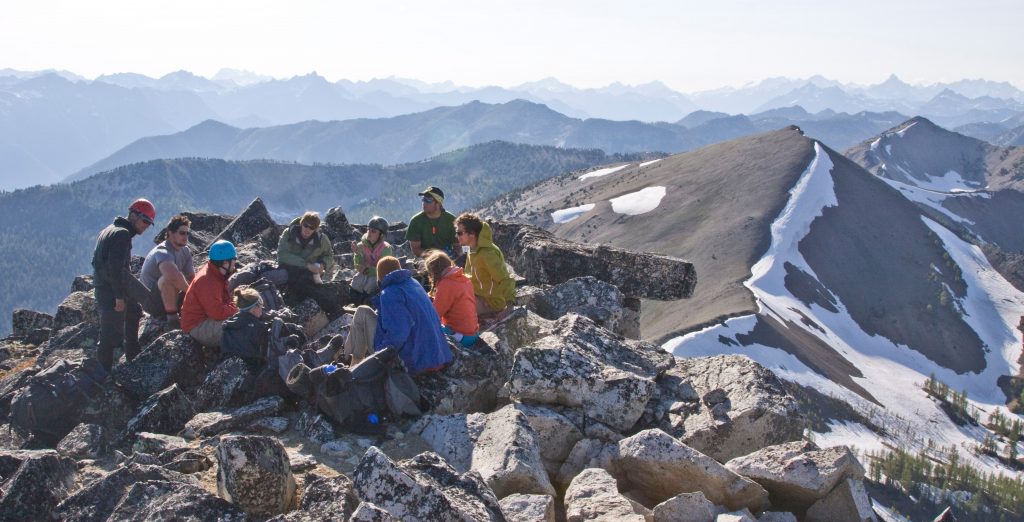
In everyday life, it can be easy to get caught up in trying to belong. Are there enough likes on my Instagram? Do my co-workers think I’m good at my job? Are my classmates judging how successful I am? The wilderness re-centers us as it reminds us to first reach out for connection. If I’m interested in a rock, then I need to pick it up and really look at it. If I want to know how cold this water is, I better put my hand in. If I want to learn more about who I am traveling with, then I need to ask them and seek out connection. Being in the wilderness reminds us of the importance of connection with others and how simple it can be if we slow our minds down.
Keep Adventuring, Keep Learning
The challenge, pace and beauty of the wilderness are constantly teaching me new things. I need the balance of wilderness education with traditional education to remind me what’s important and what I still don’t know. I use the skills that I’ve learned in the wilderness every day.
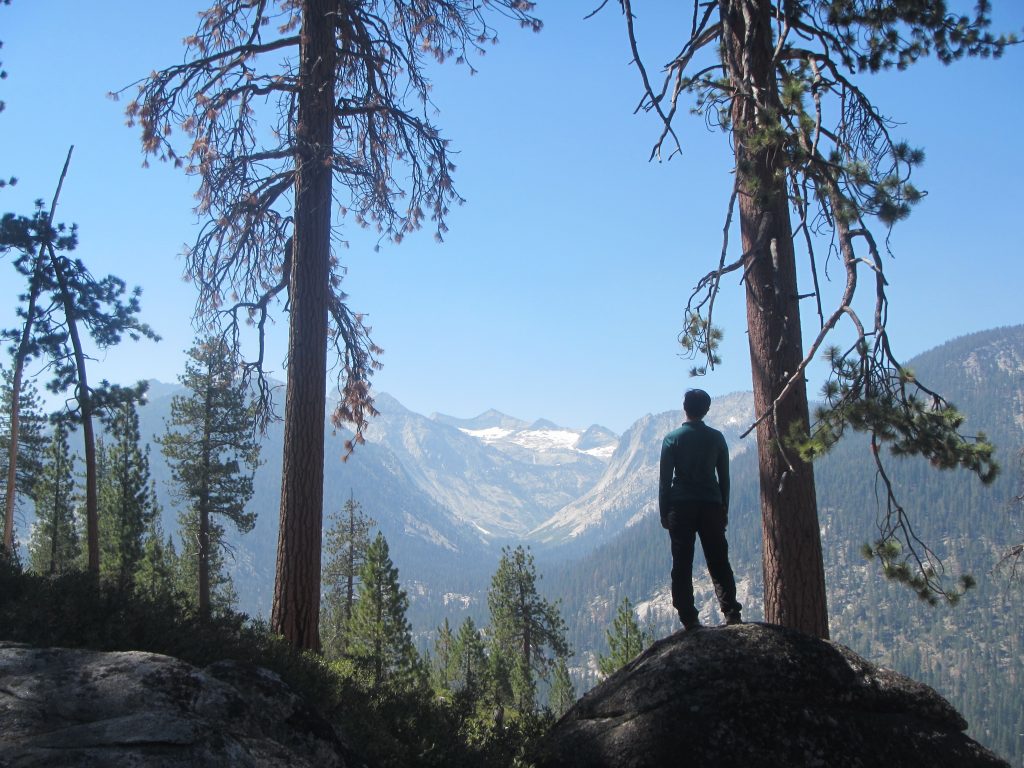
About the Author
Annie Holmes is an Instructor at the Colorado Outward Bound School who enjoys eating chocolate after a long day in the backcountry, walking for extensive amounts of time carrying a heavy pack and going on adventures with dogs. She has a degree in Psychology from UNC-Chapel Hill and enjoys talking about how our brains work and why we decide to do what we do. She also likes climbing up rocks and then rappelling down them directly afterwards and confusing her family by randomly going to places without cell phone service.
OTHER POSTS YOU MAY LIKE
Read More
Read More
Read More




